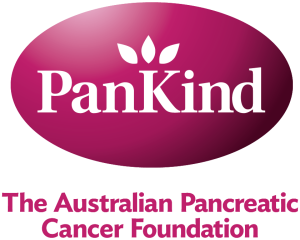Transforming Pancreatic Cancer Care: Promising Results of Investigational mRNA Vaccine

An investigational mRNA vaccine known as autogene cevumeran has demonstrated some potential in improving treatment outcomes for patients. The latest findings, presented at the American Association for Cancer Research (AACR) Annual Meeting 2024, shed light on the promising immune response elicited by this innovative vaccine.
The Role of Immunotherapy in Pancreatic Cancer
In response to the dire need for effective pancreatic cancer treatments, researchers have explored various approaches, given the limited success of conventional therapies. Dr. Vinod Balachandran, a surgical oncologist at Memorial Sloan Kettering Cancer Center, emphasized the urgency for new therapeutic strategies, stating, "Chemotherapy, radiation, targeted therapy, and current immunotherapies are largely ineffective in pancreatic cancer, so new therapies are urgently needed."
The unique challenge in pancreatic cancer lies in its ability to evade the immune system's detection, making it challenging to mount an effective immune response. Cancer vaccines, such as autogene cevumeran, aim to overcome this hurdle by training the immune system to recognize and target cancer cells.
Targeting Neoantigens with Autogene Cevumeran
Autogene cevumeran takes a personalized approach by targeting neoantigens, proteins exclusively present in cancer cells, identified from each patient's tumor. Dr. Balachandran explained, "Neoantigen-specific cancer vaccines must be custom-made for every patient, so we needed a technology that would allow rapid manufacture and delivery, together with robust immune activation."
Results from a phase I clinical trial investigating autogene cevumeran in combination with chemotherapy and immunotherapy have been promising. Patients who exhibited an immune response to the vaccine experienced significantly longer median recurrence-free survival compared to those who did not. Furthermore, the vaccine induced the expansion of CD8+ T cell clones, which persisted long-term and remained responsive to target neoantigens.
Reflecting on these findings, Michelle Stewart, CEO of PanKind Australia, remarked, "The results of this study may offer hope in the longer term for pancreatic cancer patients and their families. Immunotherapy approaches like autogene cevumeran represent a somewhat promising avenue for improving treatment outcomes and advancing towards a future where pancreatic cancer is no longer a deadly diagnosis."
Navigating the Cancer Care Landscape
Moving forward, ongoing clinical trials will further evaluate the efficacy and safety of autogene cevumeran in combination with standard-of-care treatments. While the study has only included a small number of patients to-date, the promising results underscore the potential of immunotherapy in transforming the landscape of pancreatic cancer treatment.
As research continues to evolve, collaborative efforts among researchers, healthcare professionals, and advocacy organizations will play a crucial role in driving progress and improving outcomes for pancreatic cancer patients. With continued dedication and innovation, we remain steadfast in the fight against this devastating disease.
About PanKind
PanKind, The Australian Pancreatic Cancer Foundation, is exclusively dedicated to pancreatic cancer, with a mission to dramatically increase survival rates and quality of life for those impacted by the disease.
MORE ON PANCREATIC CANCER RESEARCH
- PBAC reviews new treatment
- Impact in Research 2023
- Improvements in Surgical Practice: ScanPatient Trial
Sign up to our newsletter and follow us on facebook, instagram, linkedin and twitter to keep up-to-date with the latest news, upcoming events, personal stories and exciting breakthroughs.



